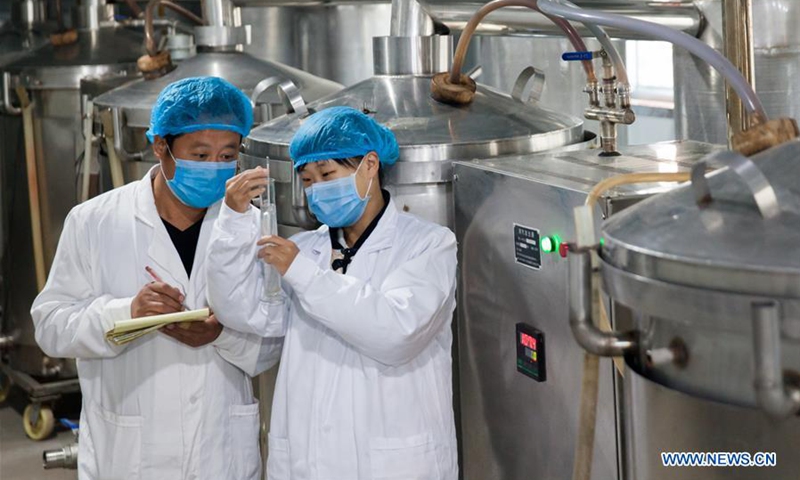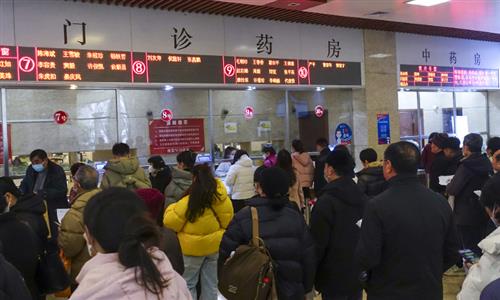
Technicians detect a non-alcohol drink made of bamboo in a biotechnology company in Anji County, east China's Zhejiang Province, June 3, 2016. Photo: Xinhua
The US Senate's homeland security committee approved a bill on Wednesday (US time) to prohibit contracts with Chinese biotech providers including BGI Group, MGI and Complete Genomics, in the latest move by Washington to expand its suppression of Chinese companies in this new field of medicine under the guise of national security.While the bill has a long way to go before becoming law, it reportedly aims to ban US federal agencies and the US government from contracting with these Chinese firms.
"BGI, WuXi AppTec and other highly subsidized companies seek to undercut their way into dominating the US biotech market while aggressively collecting the genetic and other sensitive medical data of tens of millions of Americans and transferring it back to China for malign or unknown purposes," US Senator Bill Hagerty alleged, according to a post on Hagerty's official website on Wednesday.
In a response, BGI Group said it fully supports the bill's premise of protecting Americans' personal data, but driving BGI out of the US, which is what this bill is intended to achieve, is unlikely to accomplish its goal since BGI does not have access to that data.
"The bill will limit competition and strengthen the market monopoly in the important field of human genome sequencing by using the legislative process to pick winners and losers," BGI told the Global Times on Thursday.
In a statement released on Thursday, WuXi AppTec said that it strongly disagrees with the US Senate's "preemptive and unfair" move of designating it as a "biotechnology company of concern" in its draft bill.
"WuXi AppTec has not posed, does not pose, and will not pose a security risk to the US or any other country," the company said.
Wuxi Biologics (Cayman) Inc clarified on Thursday that it is not a subsidiary of Wuxi AppTec Co. The company said it does not have a human genomics business, nor does it collect human genomic data in any of its businesses, while also stressing that it does not pose any national security risk to the US or any other country.
Chinese observers blasted US politicians, who they said were portraying China as an "imagined enemy" and expanding a crackdown on Chinese bio-tech and new-energy vehicle (NEV) companies.They said that American politicians are purposely setting obstacles to impede normal China-US economic and trade ties.
"This is another typical case in which US politicians purposely make China an 'imagined enemy' to step up suppression of Chinese companies for their own political gains, as the US presidential election draws near," Li Yong, a senior research fellow at the China Association of International Trade, told the Global Times on Thursday.
What US politicians are concerned about is that they cannot live in a world led by Chinese companies, and they have come up with every excuse to hinder China's development in a wide range of sectors including telecommunications, NEVs and now bio-technology, Li said.
"While China and the US are expanding their dialogues, what the US is doing has posed impediments to normal China-US trade," he said. He urged the US to correct its wrongdoing.
Recent media reports said that US President Joe Biden will sign an executive order to prevent foreign entities from accessing troves of Americans' personal data.
"The US overstretches the concept of national security, falsely accuses China of purchasing Americans' personal and sensitive data for malicious activities, and prevents the transfer of data to so-called 'countries of concern' including China," Chinese Foreign Ministry spokesperson Mao Ning said at a recent press conference on February 29, 2024.
"The Chinese government takes data privacy and security very seriously. We have never asked and will never ask any company or individual to collect or provide data, information or intelligence located abroad against local laws for the Chinese government," Mao noted.



